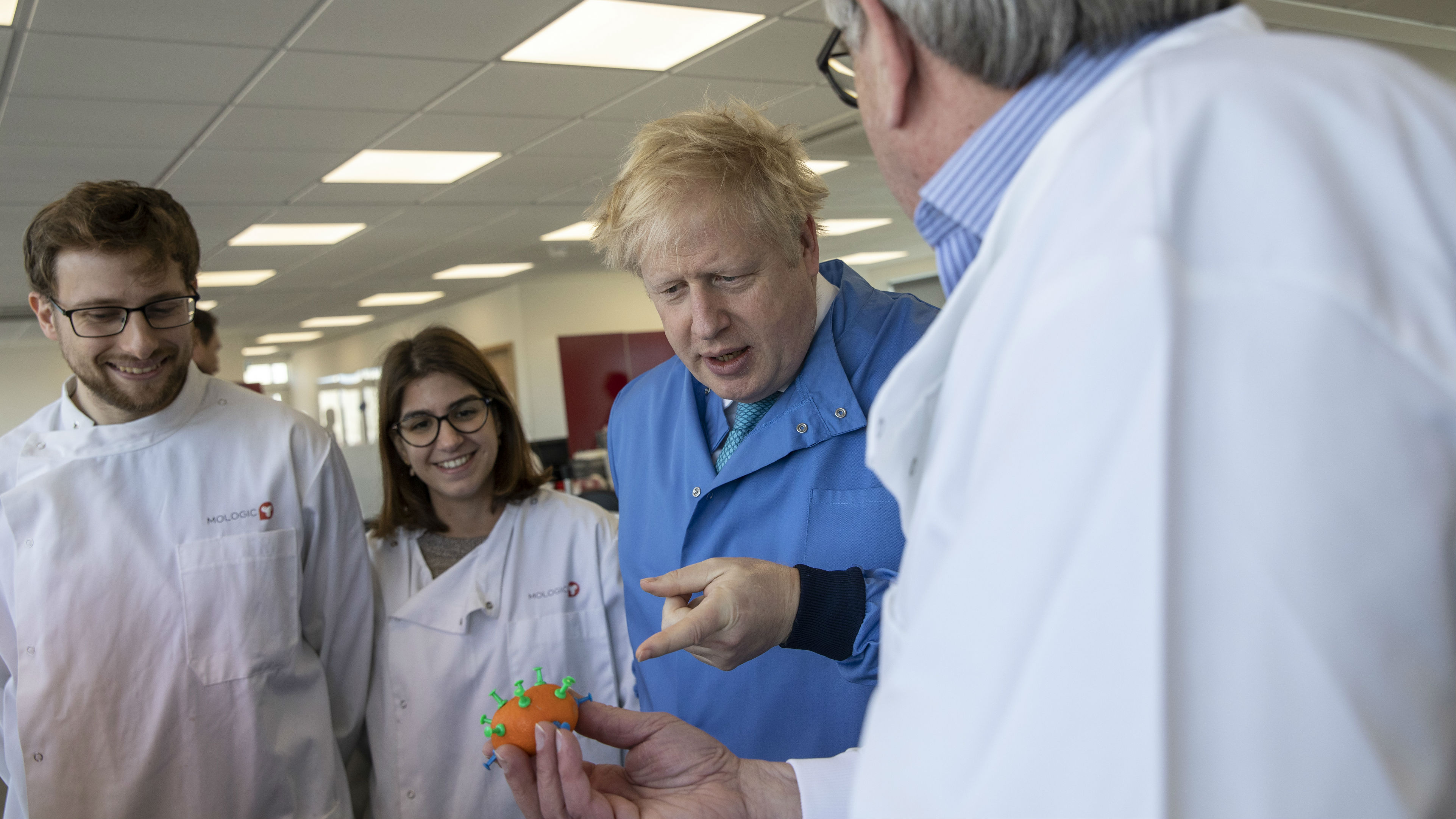Coronavirus home-testing kits to be made widely available in UK
Antibody test could restore lives to a ‘semblance of pre-lockdown normality’

A free daily email with the biggest news stories of the day – and the best features from TheWeek.com
You are now subscribed
Your newsletter sign-up was successful
Coronavirus home-testing kits are set to be available soon to healthcare workers and the general public in the UK.
The 15-minute kits will reveal whether someone has had the virus and is therefore thought to have some immunity. The home test involves pricking a finger to produce a drop of blood, which is then analysed by a device that looks like a pregnancy test unit.
The antibody test cannot tell you if you currently have the virus - it is intended for people who have already had symptoms and recovered, allowing them to know if they are no longer infectious and can return to work.
The Week
Escape your echo chamber. Get the facts behind the news, plus analysis from multiple perspectives.

Sign up for The Week's Free Newsletters
From our morning news briefing to a weekly Good News Newsletter, get the best of The Week delivered directly to your inbox.
From our morning news briefing to a weekly Good News Newsletter, get the best of The Week delivered directly to your inbox.
The Telegraph describes the development as a “game changer” and The Guardian says it “could restore many people’s lives to a semblance of pre-lockdown normality”.
Yesterday, Prof Sharon Peacock, director of the national infection service at Public Health England, told MPs on the science and technology committee that mass testing in the UK would be possible within days, but Chris Whitty, England’s chief medical officer, rowed back on this, saying that the tests would not be available so quickly.
He said the test must first be validated in Oxford to ensure it works as well as scientists hope.
“The key thing for us to do is evaluate – are these tests accurate enough to be used by the general public?” Whitty said during Boris Johnson's daily coronavirus update last night. “If they are incredibly accurate, we will work out the quickest way to release them. If they are not accurate, we will not release any of them.”
A free daily email with the biggest news stories of the day – and the best features from TheWeek.com
Officials want the tests to be targeted first at those most likely to have already encountered Covd-19, and those who most urgently need to return to work.
“I do not think, and I want to be clear, that this is something that we’ll suddenly be ordering on the internet next week. We need to go through the evaluation, then the first critical uses, then spread it out from that point of view. We need to do that in a systematic way,” said Whitty.
–––––––––––––––––––––––––––––––For a round-up of the most important stories from around the world - and a concise, refreshing and balanced take on the week’s news agenda - try The Week magazine. Get your first six issues for £6–––––––––––––––––––––––––––––––
The BBC said 90,436 people in the UK had been tested for coronavirus as of 24 March - currently between 5,000 and 6,000 a day. The government plans to increase this to 25,000 tests a day within four weeks.
The World Health Organization has warned that testing must be increased around the world. Director-General Tedros Adhanom Ghebreyesus said he had a “simple message” for all countries: “Test, test, test.”
-
 Is Andrew’s arrest the end for the monarchy?
Is Andrew’s arrest the end for the monarchy?Today's Big Question The King has distanced the Royal Family from his disgraced brother but a ‘fit of revolutionary disgust’ could still wipe them out
-
 Quiz of The Week: 14 – 20 February
Quiz of The Week: 14 – 20 FebruaryQuiz Have you been paying attention to The Week’s news?
-
 The Week Unwrapped: Do the Freemasons have too much sway in the police force?
The Week Unwrapped: Do the Freemasons have too much sway in the police force?Podcast Plus, what does the growing popularity of prediction markets mean for the future? And why are UK film and TV workers struggling?
-
 A Nipah virus outbreak in India has brought back Covid-era surveillance
A Nipah virus outbreak in India has brought back Covid-era surveillanceUnder the radar The disease can spread through animals and humans
-
 A real head scratcher: how scabies returned to the UK
A real head scratcher: how scabies returned to the UKThe Explainer The ‘Victorian-era’ condition is on the rise in the UK, and experts aren’t sure why
-
 How dangerous is the ‘K’ strain super-flu?
How dangerous is the ‘K’ strain super-flu?The Explainer Surge in cases of new variant H3N2 flu in UK and around the world
-
 Covid-19 mRNA vaccines could help fight cancer
Covid-19 mRNA vaccines could help fight cancerUnder the radar They boost the immune system
-
 The ‘menopause gold rush’
The ‘menopause gold rush’Under the Radar Women vulnerable to misinformation and marketing of ‘unregulated’ products
-
 The new Stratus Covid strain – and why it’s on the rise
The new Stratus Covid strain – and why it’s on the riseThe Explainer ‘No evidence’ new variant is more dangerous or that vaccines won’t work against it, say UK health experts
-
 RFK Jr. vaccine panel advises restricting MMRV shot
RFK Jr. vaccine panel advises restricting MMRV shotSpeed Read The committee voted to restrict access to a childhood vaccine against chickenpox
-
 RFK Jr. scraps Covid shots for pregnant women, kids
RFK Jr. scraps Covid shots for pregnant women, kidsSpeed Read The Health Secretary announced a policy change without informing CDC officials